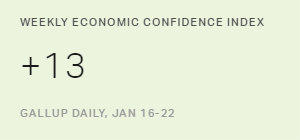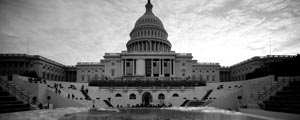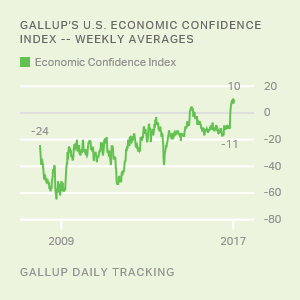Story Highlights
- Weekly index reaches +13, highest yet in Gallup tracking
- Both current conditions, economic outlook components on upswing
WASHINGTON, D.C. -- Americans' confidence in the U.S. economy reached new heights last week. Gallup's U.S. Economic Confidence Index inched past its prior high of +11 to +13 for the week ending Jan. 22.
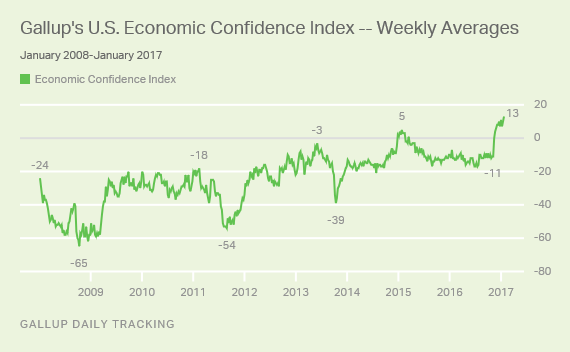
Americans have viewed the economy more positively since President Donald Trump's election in November than they did in the nine years prior -- largely attributable to improved confidence among Republicans. Gallup's index climbed three points each of the previous two weeks to reach the most recent weekly average of +13. This includes a reading of +15 in the latest three-day rolling average -- the highest in Gallup's trend -- based on Jan. 20-22 interviewing conducted after Trump's inauguration.
Gallup's U.S. Economic Confidence Index is the average of two components: how Americans rate current economic conditions and whether they feel the economy is improving or getting worse. The index has a theoretical maximum of +100 if all Americans were to say the economy is doing well and improving, and a theoretical minimum of -100 if all Americans were to say the economy is doing poorly and getting worse.
The current conditions score for the week ending Jan. 22 was +12, based on 33% of Americans rating the economy as "excellent" or "good," and 21% rating it as "poor." The economic outlook score was +13, based on 53% of Americans saying economic conditions in the country were "getting better," and 40% saying they were "getting worse."
Both the current conditions and economic outlook components reached new highs last week.
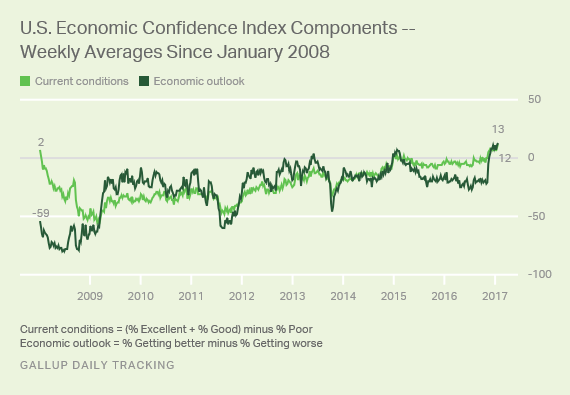
Bottom Line
Trump, who made big promises about what he could do for the nation's economy, enters the White House at a time when Americans evaluate the economy more positively than negatively -- and more positively than at any time since Gallup began tracking the measure in 2008. That stands in stark contrast with the situation for his predecessor Barack Obama, who took office during an international financial crisis in 2009 when the U.S. Economic Confidence Index was -52.
Although many aspects of the economy are better now than they were when Obama took office, Trump seized on some of its weaknesses to convince Americans to elect him president. Trump's ability to improve upon Obama's economic record will go a long way in determining whether Americans remain confident about the health of the economy.
Historical data are available in Gallup Analytics.
Survey Methods
Results for this Gallup poll are based on telephone interviews conducted Jan. 16-22, 2017, on the Gallup U.S. Daily survey, with a random sample of 3,044 adults, aged 18 and older, living in all 50 U.S. states and the District of Columbia. For results based on the total sample of national adults, the margin of sampling error is ±2 percentage points at the 95% confidence level. All reported margins of sampling error include computed design effects for weighting.
Each sample of national adults includes a minimum quota of 70% cellphone respondents and 30% landline respondents, with additional minimum quotas by time zone within region. Landline and cellular telephone numbers are selected using random-digit-dial methods.
Learn more about how the Gallup U.S. Daily works.
